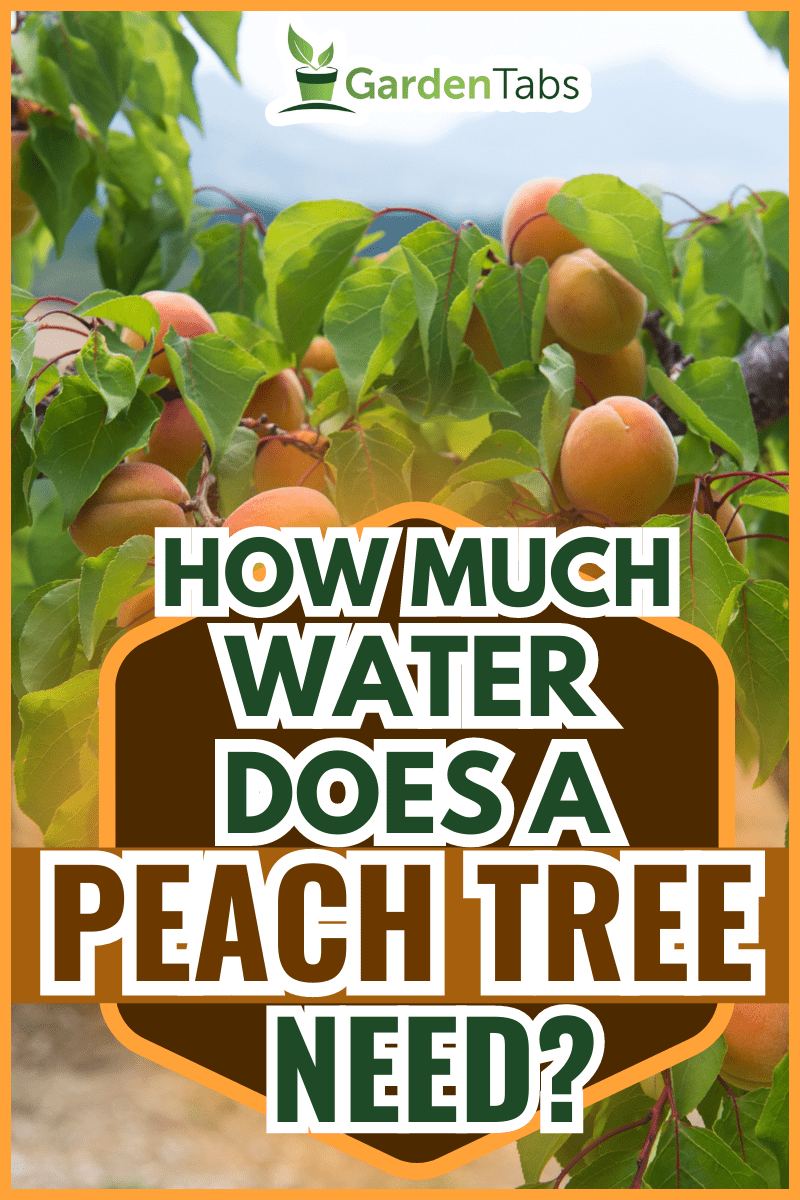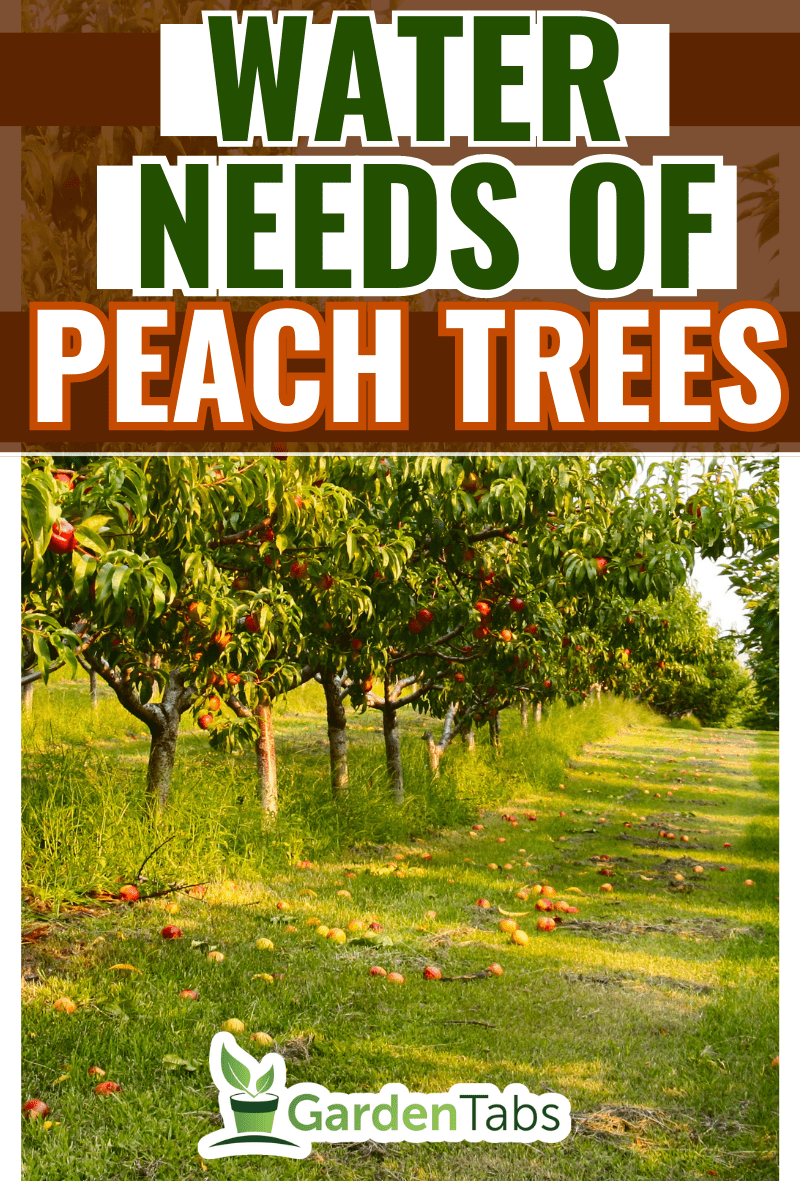Water plays a critical role in a peach tree's growth, and that's why it's important for growers to irrigate regularly. But how much water does a peach tree need? We have researched this topic and found the answer.
Mature peach trees require a minimum of 36 inches of water annually. In July and August, you should irrigate your tree with 35 to 40 gallons of water daily
Meanwhile, young peach trees may need up to three to five gallons every week.
Peach trees need consistent watering to ensure healthy growth, so finding out how to properly irrigate them is crucial. Don't worry—in this article, we will discuss everything you need to know about the topic. Read on to find out more!
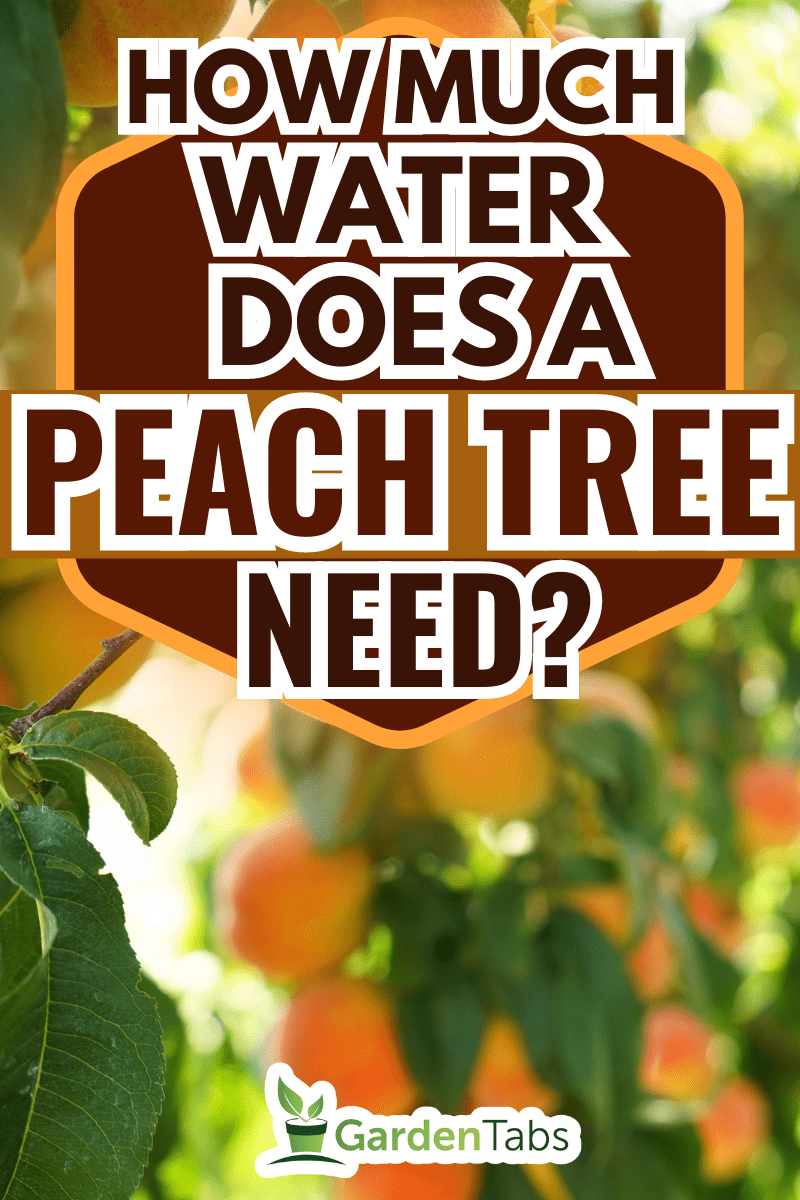
How Much Water Does A Peach Tree Need?
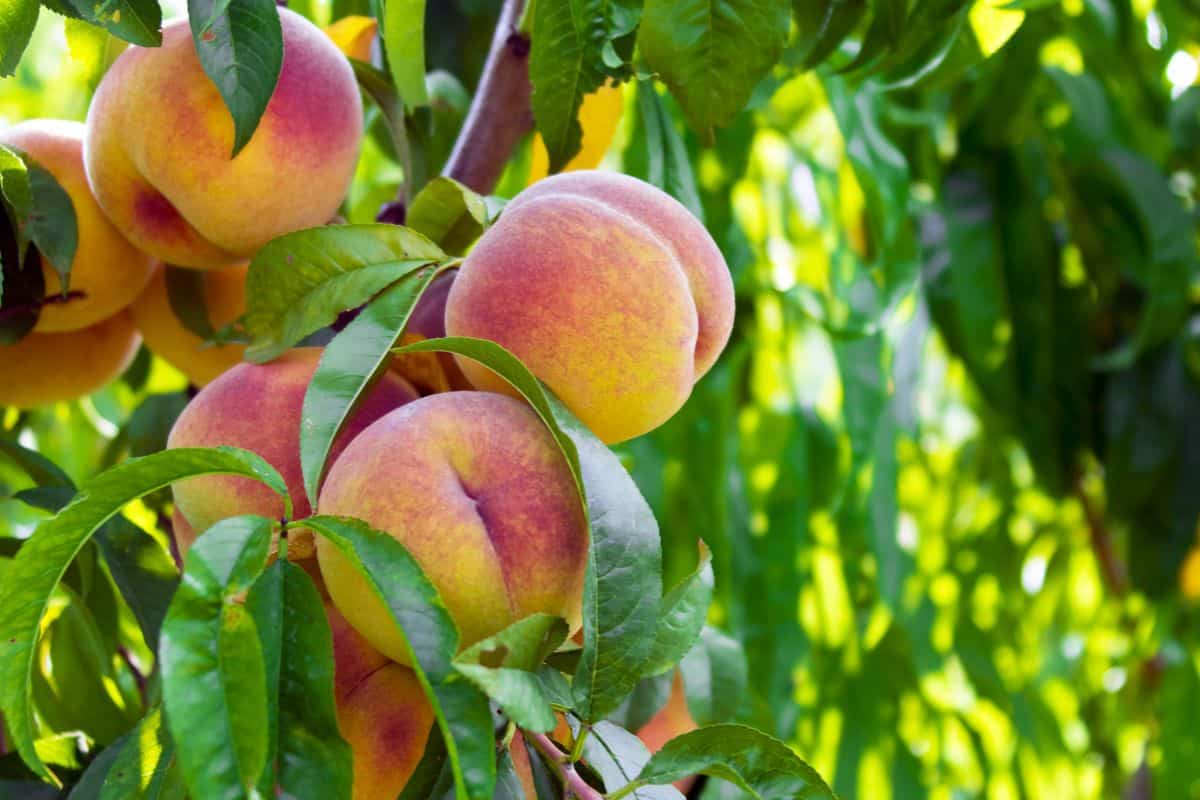
Peach trees are temperate trees that thrive in Mediterranean climates where they receive full sun and have well-drained, fertile soil. A mature peach tree will require a total minimum water requirement of 36 inches per year.
Three weeks before harvest, fully grown, mature peach trees will be more sensitive to insufficient water. The yield and fruit quality may be impacted if they don't get enough water.
That's why you should irrigate your tree with 35 to 40 gallons of water daily in July and August, which is the fruiting season for peach trees.
A young peach tree will need consistent watering in order to develop strong roots. Regular irrigation will also make sure that the soil is consistently and evenly moist for the tree.
Young peach trees may require three to five gallons of water weekly to ensure good growth. You should water thoroughly using a garden hose.


Check out this garden hose on Amazon.
You should try not to water the trunk of an established peach tree, because this can cause root and crown disease.


Check out this garden hose nozzle on Amazon.
You should also monitor rainfall and soil moisture to help determine how much water the tree will need. An average of 1 to 1.5 inches of water will be sufficient for a mature peach tree. If you have problems with soil moisture, spreading mulch will conserve soil moisture.
When Should You Water Your Peach Tree?
Young peach trees need to be watered three times per week as they become established. This will promote good root system development and will result in robust trees.
As the peach tree grows, it will require less frequent irrigation. You will only need to generously water the tree when the soil gets relatively dry. This will help you avoid soggy soil that leads to root diseases.
If you notice that you have sandy soil, you should water your peach tree every three to five days. Meanwhile, heavy soil will need to be watered every 1.5 to 2 weeks.
During hot weather, your peach tree should be watered more often. Midsummer and post-harvest droughts may affect your tree's flower and fruit development, which is why irrigation may be needed after harvest if there is a drought.
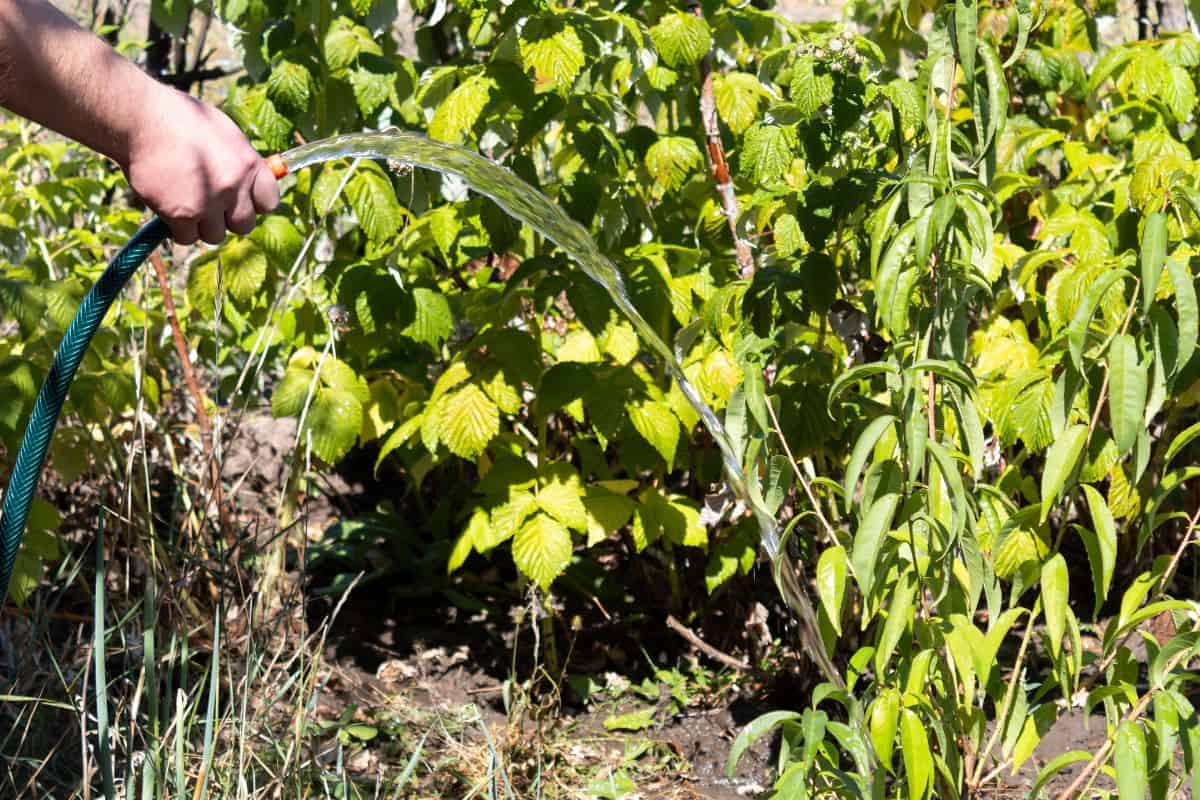
Can You Water Peach Trees At Night?
Watering peach trees at night can help cool them off after a hot afternoon. But watering them in the morning is preferable because watering at night can come with risks.
Watering during the evening can cause the water to sit in the soil and roots, and this can lead to rot and other problems.
If you water in the morning, you can avoid this risk. The water will be completely absorbed, and moisture will be retained in the soil.
Watering in the afternoon is also not recommended, especially during hot weather. Before the tree can absorb the water, the heat will cause evaporation, which can result in the loss of up to half the water.
How Can You Tell If a Peach Tree Is Overwatered?
Peach trees can be damaged if overwatered. You can tell if your peach tree is overwatered if you see the color of the leaves changes from green to yellow, red, or purple.
Signs may also include leaves shedding and falling off the tree. In the worst-case scenario, the tree's roots will die and have a black or purple color with a foul odor.
You can also tell if you are giving too much water to your tree if water is standing around its roots. This can prevent the tree from getting oxygen in the soil, which is needed for healthy growth.
Young peach trees are especially sensitive to standing water and can die if it gets out of hand. That's why it's critical for you to water your trees accordingly.
Finding the right place to plant your peach tree will also prevent overwatering. You should plant your tree in an area where the soil can drain well. Planting the tree on a raised area and or bed can keep the soil drier and prevent standing water.
What PH Does A Peach Need To Grow?
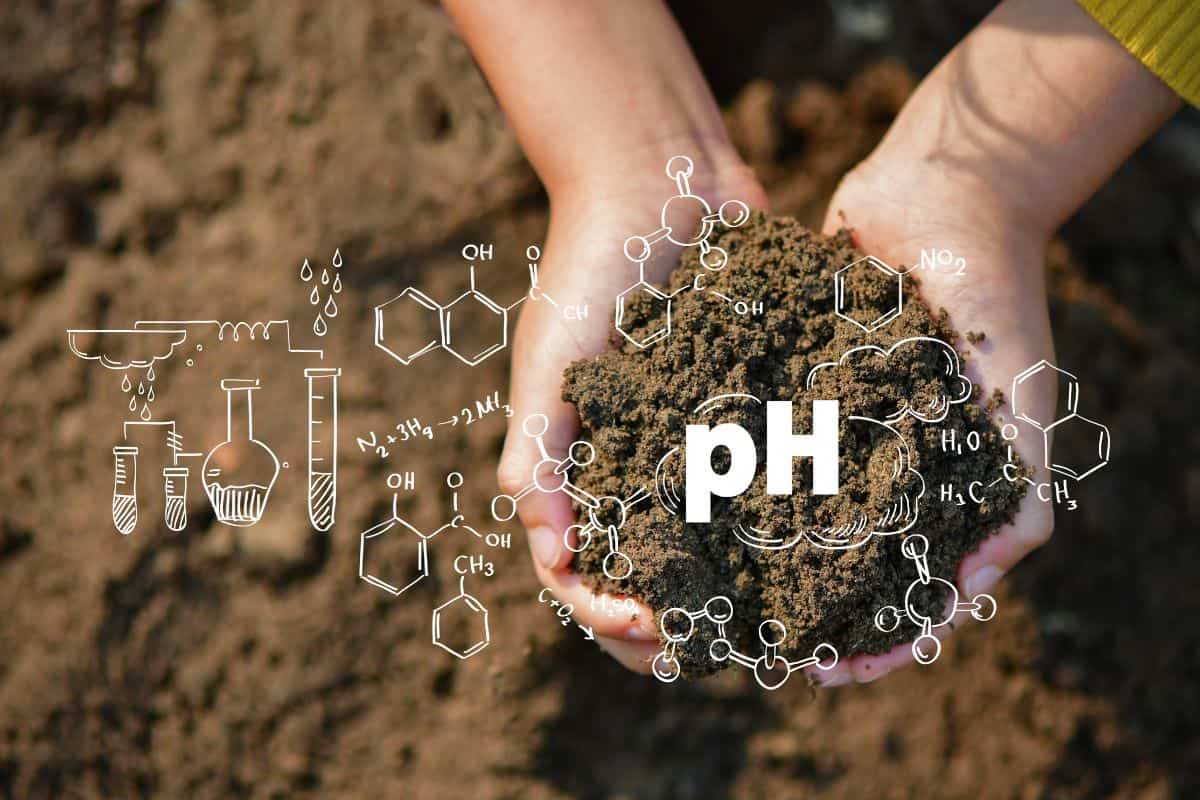
The pH level of the soil plays a huge factor in your peach tree's growth. If the soil is too acidic, it may not drain water very well, which is not good for your peach tree's growth.
Peach trees need soil with a pH level of 6.5 to 7. If your soil has a lower pH level, it may affect your tree's root functions. The roots will not be able to absorb the nutrients needed from the soil, which will slow down your tree's growth.
You should conduct a pH test on your soil and see if it's compatible with peach trees. If the results show an incompatible pH level, you can alter the soil's pH using lime and elemental sulfur or nitrogen fertilizer.
If your soil is too acidic, you can add lime to neutralize the acid. On the other hand, if the soil is too alkaline, apply elemental sulfur or nitrogen fertilizer to the soil to lower the pH level.
What Is The Best Soil For Peach Trees?
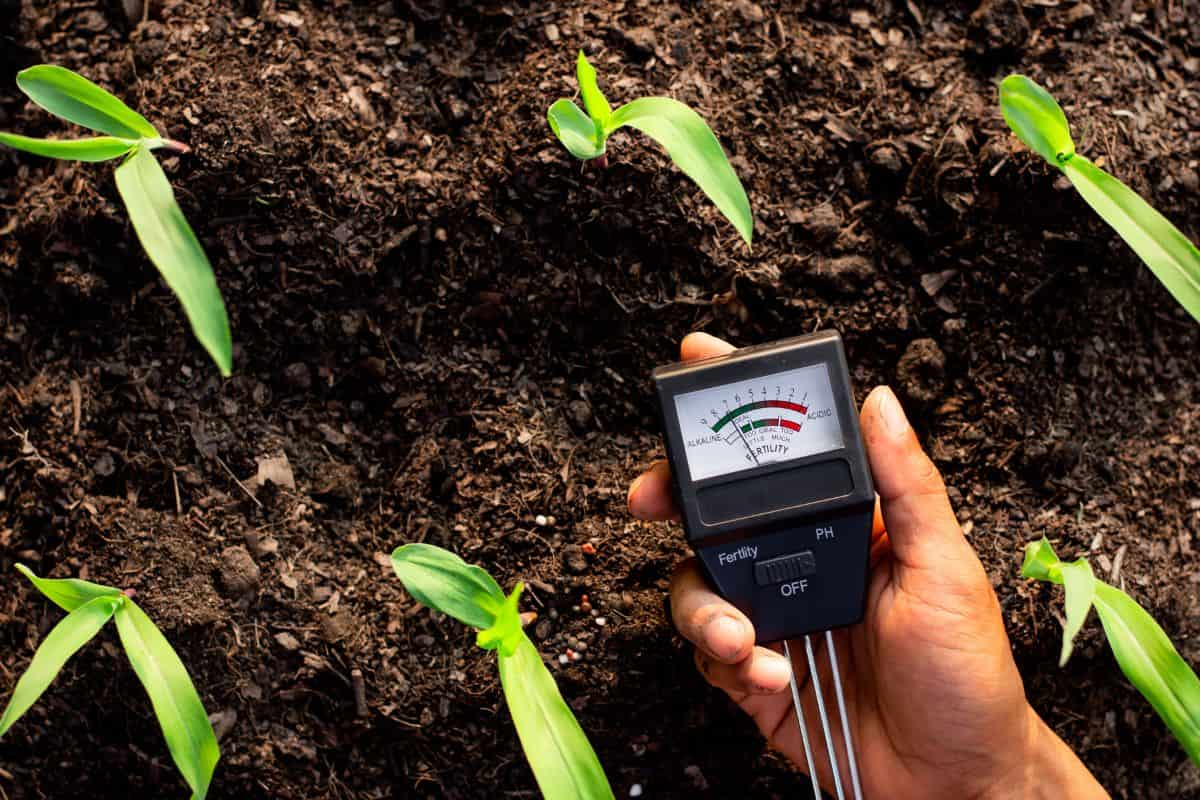
Using the right soil for your peach trees can play a critical role in their growth. The soil you use should absorb water well and be full of the nutrients peach trees need.
Loam soil with a neutral pH level is for peach trees since loam soil is loose and can absorb water well and maintain its moisture for long periods. Loam soil can be sandy or clay-based, with each type varying in moisture absorption and retention.
If you are going to artificially put soil in your yard, you can do it at any time of the year as long as the ground is not frozen or overly saturated with water. You can also conduct a soil test afterward to determine what nutrients and minerals are missing in your soil.
Once you determine the nutrients needed, you can make amendments such as macro-nutrient or micro-nutrient fertilizers, water drainage, and pH correction.
Is Rainwater Better For Trees?
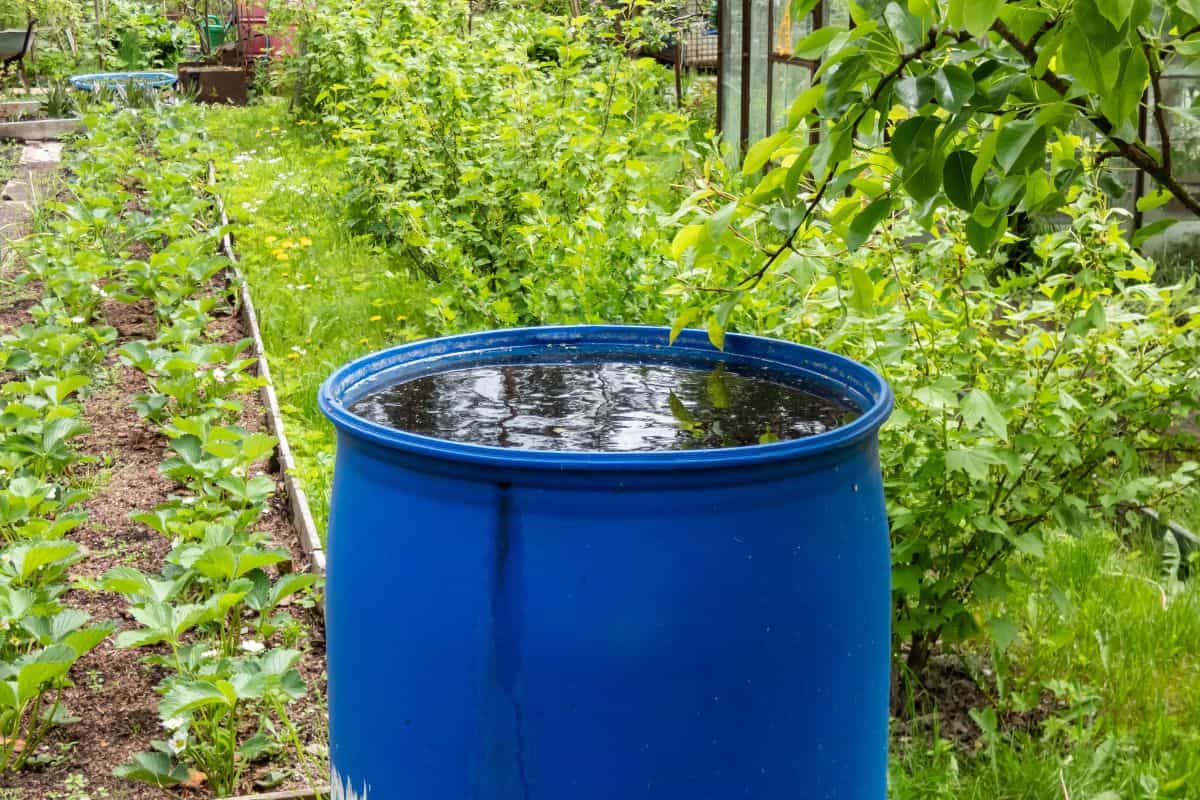
Rainwater is a preferred water source for trees over other water sources because it is free from salt, minerals, and other chemicals that can be found in groundwater and municipal water.
Salt and chemical build-up in your soil will affect your tree, so using a water source free of these variables will be healthier for your tree. Rainwater also contains nitrate, a combination of oxygen and nitrogen, a helpful macro-nutrient for trees.
Is Milk Good For Trees?
Using milk as a fertilizer has been found to be beneficial for some plants. Milk contains nutrients such as vitamin B, which can improve overall health. The microbes in milk are also beneficial for the soil.
The calcium in milk helps support growth. A lack of calcium can stunt growth and even cause diseases, such as blossom end rot.
Milk can also serve as a pesticide. Milk has also proven to be effective against fungal infections such as powdery mildew.
However, you should not use an excessive amount of milk as fertilizer because its bacteria may spoil and cause a bad smell and lead to poor tree growth. Its fats may also cause a bad odor.
To Wrap Up
A peach tree relies on irrigation for growth and quality. So if you want quality peaches, knowing the correct way to water your tree is essential. We hope this article has helped with your questions about watering peach trees.
Here are some related articles that may also be helpful:

